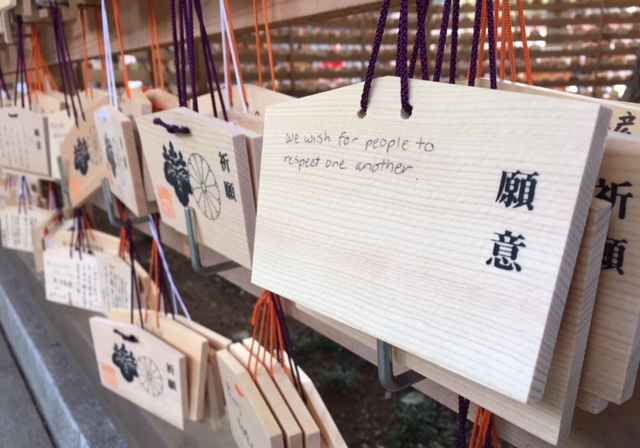The Bad Leadership Chronicles: Contempt, Thy Name is Trump

Seen at Meiji Shrine, Tokyo Japan
With each passing day, President Trump sinks to new lows. In recent days, he has called a female senator a “lightweight…flunky” and has cast her as a prostitute willing to trade sex for campaign contributions. This is the latest in a never-ending litany of disdainful remarks leveled at professionals he works with and the constituents he works for (meaning, ALL of the American people.) What’s more, it’s very likely that by the time I finish this blog entry, he will have disparaged someone else. His arrogance and contempt seem bottomless; a rapid-fire spew that we contend with all day, every day.
Perhaps Trump thinks that insulting people shows how powerful he is, and that if he is powerful, then he is an effective leader. I can’t follow his logic, if he has any. What I can say is that if any manager, executive or CEO disparaged their employees, colleagues or clients as publicly and relentlessly as Trump does, they’d be fired in a hot second.
Oppressing people by dominating them verbally can never be good leadership. People might temporarily bend out of shock or fear, but they will never truly coalesce behind such a morally bereft person. A core value for any strong leader has to be the consistent cultivation of psychological safety.
Psychological safety is the confidence that when one asks a question, solicits feedback, floats a new idea, or points out a mistake, that s/he will come through with integrity intact. As Google has pointed out, psychological safety is a key ingredient in great teams.* Only when we feel sure that we will not be shamed while carrying out daily activities in the workplace, can we optimally produce and innovate.
Over this last year of the Trump administration, I’ve noticed that workplaces are becoming increasingly more anxious. There is a heightened sense of sociopolitical volatility in the nation, and these are being reflected in a new uneasiness at work. People feel threatened and unnerved by uncertainties that a year ago would have been enlivening. They are over-reacting to mistakes, avoiding asking for feedback, sitting silently rather than disagreeing, and deciding not to ask questions. They seem to be fearing some sort of retribution, even when there is no precedent for it on their team or in their organization.
Trump, in his bombastic and disrespectful style, has created a nation that no longer feels psychologically safe going about its daily activities. Since he is the Shamer-in-Chief, there is no wonder that Americans feel far less secure overall, and, that they bring this worry and insecurity with them to work.
Our uneasiness has created a kind of risk-aversion, where we continually have to weigh whether the point we want to make is worth the shaming that might follow. But if we can’t risk thinking together (which may well mean disagreeing sometimes) we cannot produce, much less innovate or grow.
Trump has done a terrible disservice to our country by insisting that nothing is sacred, that no one deserves unconditional respect, and that the only facts he will consider are the ones he generates from his own preferences. This has had a chilling effect on our populace, not just in terms of our loss of global standing, but also in the destabilization we experience in our individual lives.
Since Trump cannot lead, and is incapable of showing respect for others, we must double down and do this ourselves, wherever we go. We must not emulate him, nor let ourselves become inured to his disgraceful behavior. We must not lose sight of the core values that underpin our successful collaborations, whether they be personal or professional. In the face of the most dangerous threat to our survival, we must do everything we can to counteract our revulsion and paralysis. We must actively create psychological safety in our workplaces and in our communities, for we have seen what happens when it is attacked and dismembered. Now more than ever, we need each other to rise up, and to lead.
*https://www.nytimes.com/2016/02/28/magazine/what-google-learned-from-its-quest-to-build-the-perfect-team.html?_r=0
